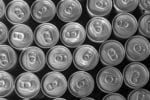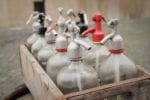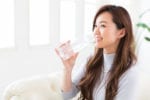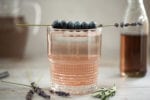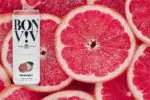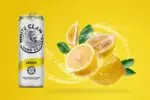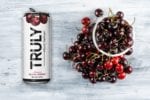Risky Business: Caffeinated Alcoholic Drinks
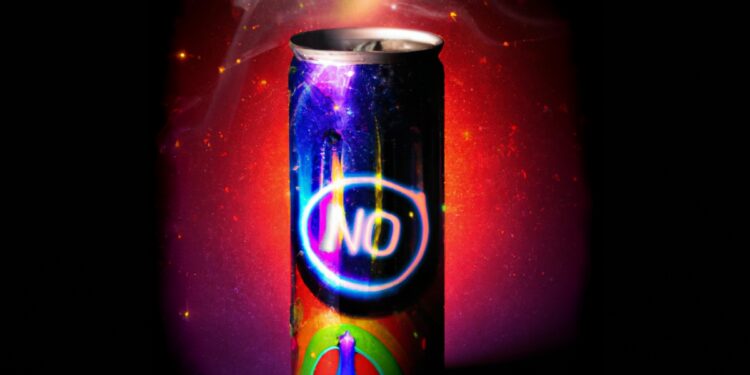
The Resurgence of Controversial Caffeinated Alcoholic Drinks
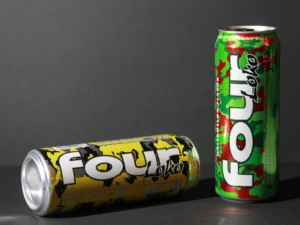
Image Source: NPR Haraz Ghanbari/AP
In the late 2000s, a beverage called Four Loko hit the alcoholic market like ice cream in a heat wave. Containing guarana, taurine, 156 mg of caffeine, and an ABV of 12%, Four Loko promised an electrifying fusion of energy and alcohol. It was a sweet, fizzy concoction that (purportedly) masked the taste of alcohol. While the flavor masked the alcohol taste, the caffeine masked the alcohol effect. And it wasn’t long before Four Loko became a symbol of the party scene, earning the nickname “blackout in a can.” It flew off the shelves, more than tripling its revenue in the course of one year from $45 million to a whopping $150 million in 2010. But before 2010 was over, Four Loko was embattled in lawsuits and the FDA demanded they remove the caffeine, guarana, and taurine.
Four Loko’s journey from rising star to controversy-riddled pariah provides a cautionary tale in the world of caffeinated alcoholic beverages.
Legal Battles and the FDA’s Decision
Four Loko’s ascent was meteoric, but it soon faced a barrage of legal challenges and regulatory scrutiny. California was one of the battlegrounds, where a college student’s erratic behavior after consuming Four Loko led to a tragic encounter with the police. The student’s father sued the makers, arguing that the combination of alcohol and caffeine created a dangerous product. A California appeals court’s decision allowed the lawsuit to proceed, opening up the floodgates for other lawsuits. Florida soon witnessed a lawsuit against Four Loko’s manufacturer after a 20-year-old intoxicated by the drink tragically shot himself. Months after, a Chicago family sued when their 15-year-old son died after drinking Four Loko at a concert.
These legal battles put Four Loko under a microscope, raising concerns about the effects of mixing caffeine with alcohol. Amid mounting controversies, the U.S. Food and Drug Administration (FDA) weighed in, issuing warning letters to Phusion Projects, the makers of Four Loko, and other energy drink manufacturers. The FDA deemed caffeine an unsafe additive for alcoholic beverages, effectively setting the stage for a significant shift in the industry. This regulatory decision signaled the end of an era for caffeinated alcoholic drinks. Four Loko reformulated its recipe to remove caffeine, guarana, and taurine, and the brand was stuck needing to dispose of $30 million dollars worth of product.
The Rise of Hard Teas
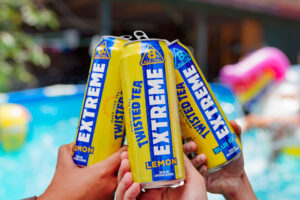
Image Source: PR Newswire
Hard Teas have been around since the early 2000s, patiently existing in the background of the Hard Seltzer and RTD crazes. The Hard Tea market finally got its turn and surged in the early 2020s, rising to 2.1 billion in 2022. In the ever-evolving landscape of alcoholic beverages, hard teas have emerged as a naturally caffeinated alternative. Unlike their caffeinated alcoholic counterparts, hard teas harness the inherent caffeine found in tea leaves. As the FDA ban is only on synthetic caffeine, hard teas (and hard coffees) sidestep regulatory actions from the FDA.
Caffeinated Alcoholic Drinks Start Trending Hard
The success of brands like The Boston Beer Company’s Twisted Tea, founded in 2001, has demonstrated that hard teas are not just a passing trend but a significant player in the beverage industry. According to a study by Grand View Research, Inc., the global hard tea market is on the rise, expected to reach a substantial USD 14.50 billion by 2030.
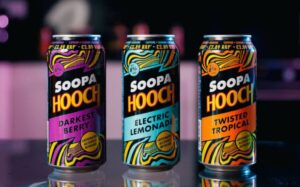
Image Source: The Spirits Business
While Twisted Tea has a relatively moderate ABV of 5% and caffeine content of 30 mg, many caffeinated alcoholic beverages elect for much higher alcohol and/or caffeine content. For example, Cafe Agave Spiked Cold Brew has an ABV of 12.5% and a caffeine content of 42 mg. Bad Larry’s Cold Hard Coffee has an ABV of 6% and caffeine content of 180 mg (approx. 2 to 3 shots of espresso, depending on the roast). Even Twisted Tea released a high-alcohol option with an ABV of 8%. Meanwhile, in the UK, a new product just launched called Soopa Hooch with an ABV of 8%, 140 mg of caffeine (per can), taurine, and guarana. While the FDA ban means Soopa Hooch could never head stateside, the product release is too eerily similar to Four Loko to be ignored.
The Risky Nature of Caffeinated Alcoholic Drinks
Four Loko’s meteoric rise and fall serve as a cautionary tale for the beverage industry. The allure of combining caffeine’s stimulating effects with alcohol’s intoxication led to a product that gained immense popularity but also drew legal and regulatory challenges. The tragic incidents and lawsuits that followed raised questions about the safety and responsibility of marketing such beverages, especially to young consumers. That said, the demand for these products remains strong, and most hard teas and hard coffees only contain a moderate amount of alcohol and naturally occurring caffeine. Responsible adults of legal drinking are empowered to make these decisions for themselves.
Full disclosure: we at Seltzer Nation love a good (or great) hard coffee or tea, and we often review them or feature them on listicles.
Want to find your perfect hard seltzer or canned cocktail? Try our new Seltzer Finder! You can search by flavor, ABV, carbs, and more to discover your ideal beverage.
